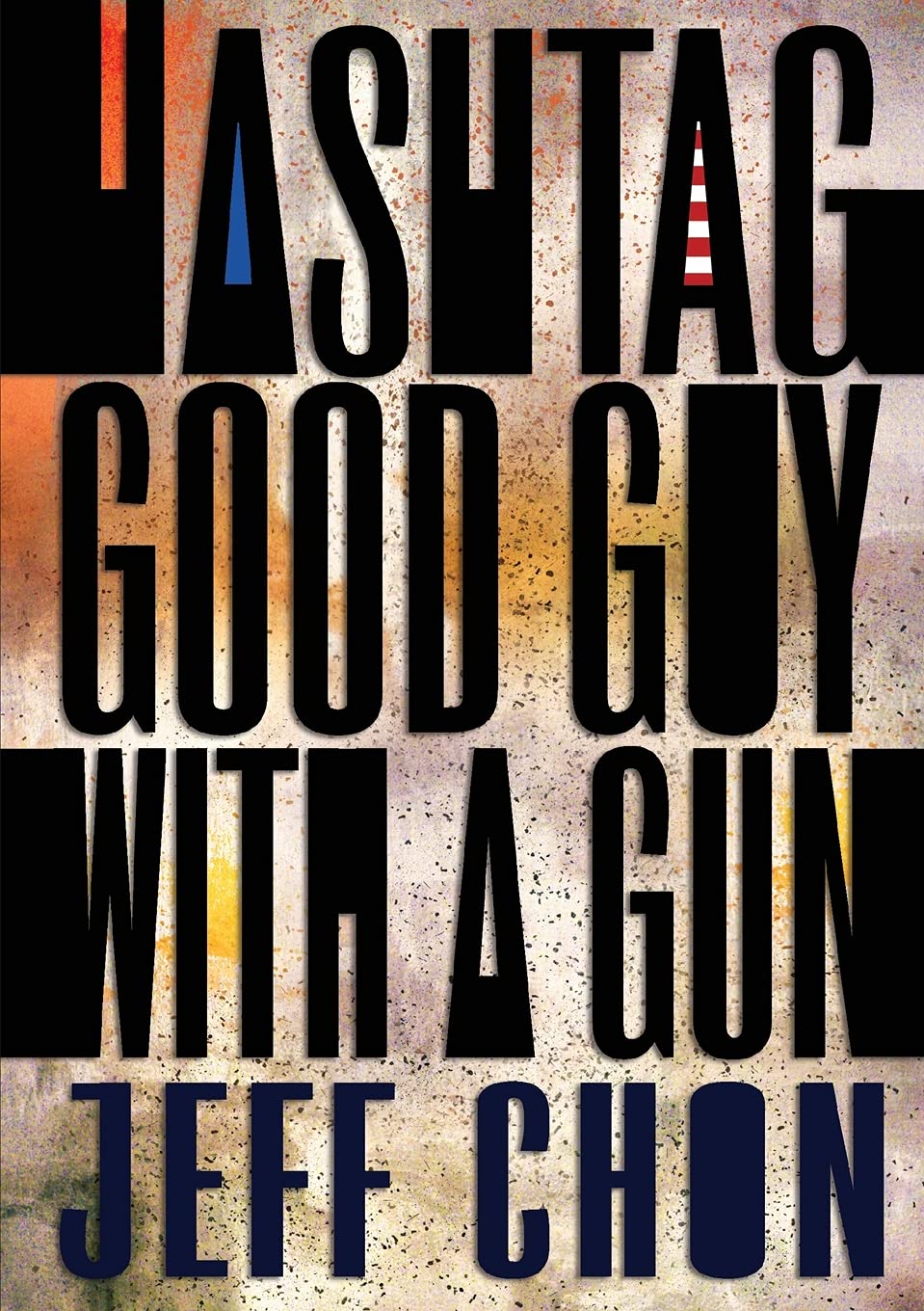
A Review of Hashtag Good Guy with a Gun by Jeff Chon: SPOILER WARNING!
Words By Ally Geist
Published May 1, 2021 by Sagging Meniscus Press
Let me preface this review by giving a major trigger warning. Hashtag Good Guy with a Gun, while fiction, references cults, sexual assault, gun violence, racism, and trauma. If you aren’t in the headspace to dive deeper into any of these topics, I don’t suggest reading the book.
As someone who’s worked in publishing for years, I’m rarely surprised by books. Enter Hashtag Good Guy with a Gun. Jeff Chon has created a truly unique text. I’m blown away by how much research must have gone into creating this depth of character, this chaotic plotline, and at times, my visceral reactions. The book begins with rich references to a Korean folktale and returns to the story periodically to underline key themes. Chon seamlessly integrates a variety of literary references, character backstories, and public events into an impressive mosaic of a story. And somehow it all works.
The structure of the book is confusing and messy—but that’s how trauma is, isn’t it? Nothing is clear-cut; nothing makes sense. Chon makes readers feel like we’re constantly searching for answers. The shifting time period was disorienting at first but ended up providing a comprehensive overview of the story. It felt like the flashbacks one might associate with childhood trauma. Jeff Chon balances intense, life-altering events with nitty-gritty details of mundane life (Scott checking his email, taking a shower, scrolling on Instagram, etc.) in a non-cumbersome way, making the story more rich and real. I especially appreciate how these everyday actions end up being more meaningful than they first appear, such as when we see Scott missing Lisa by watching him scroll through old photos on her Instagram.
Chon keeps readers hooked by slowly revealing elements of character backstories. These elements come together as a mosaic of identity and experience. Despite the extreme circumstances under which we meet the characters, Jeff Chon portrays them sympathetically. Though their actions deeply disturb and disgust me, I sort of understand why they end up where they do, thanks to the author’s attention and thoughtfulness.
Readers see the way Scott Bonneville’s trauma has shaped him. We see the relationships throughout his life, his bizarre fascination with violence incited by Catcher in the Rye, and how he relates to his surroundings. And we learn all of this about him while knowing that he will later go into a Pizza Galley and kill someone. We already know the conspiracy theory that led him there and how things didn’t go according to plan. This hindsight allows readers to process Scott’s past in a unique way that lets us think critically about how these experiences shape the man he grows up to be. This story is complex for readers to unpack because we have to sit with what didn’t happen, what did happen, and all the surrounding unanswered questions.
Part of what made the book so startling is the idea that coincidences, non-coincidences, and a combination of timing, conspiracy theories, and personal trauma all lead up to a moment that can change everything. The fact that Scott only becomes the #GoodGuyWithAGun because he got there second—not because he had good intentions—is chilling. He’s the “good guy” because the man he kills was about to kill someone else. This media attention shows how other people can misinterpret a situation and in doing so they project a false “truth” that will be remembered. It’s chilling because it has, does, and will happen.
The whole book makes readers feel complicit in the hurt, bigotry, and violence that happen throughout the story—and it all feels so familiar as we reflect on recent history. The fact that Scott’s actions could have led to tragedy but instead he ends up a hero is both shocking and incredibly believable given recent political events. Jeff Chon shows how someone’s beliefs, their past experiences, and societal interpretation can all blend together in a perfect storm to stir up hatred, passion, and societal upheaval. I don’t know what to think about this book. I know it’s confusing. I know it has deeply unsettled me. But I also know it’s one of the most well-thought-out books I’ve read in a long time. I can see the artistry that went into creating this non-linear, complicated story. Though the content and plot aren’t really my cup of tea as a reader, I can recognize skill when I see it. I’m deeply impressed by how Chon put this book together.